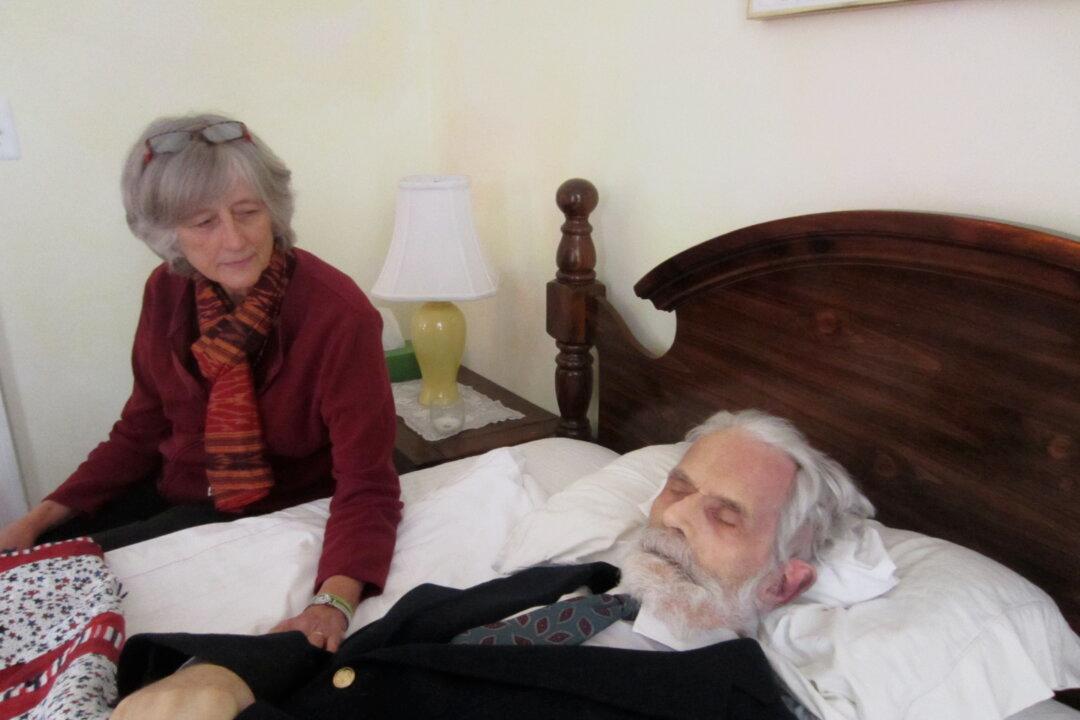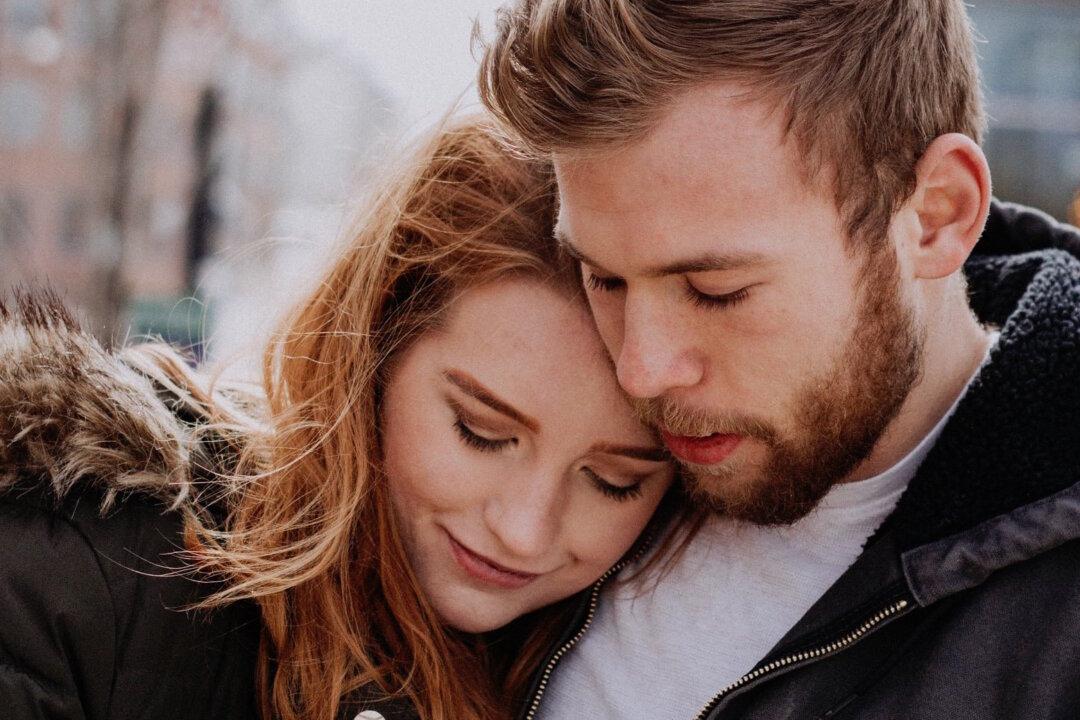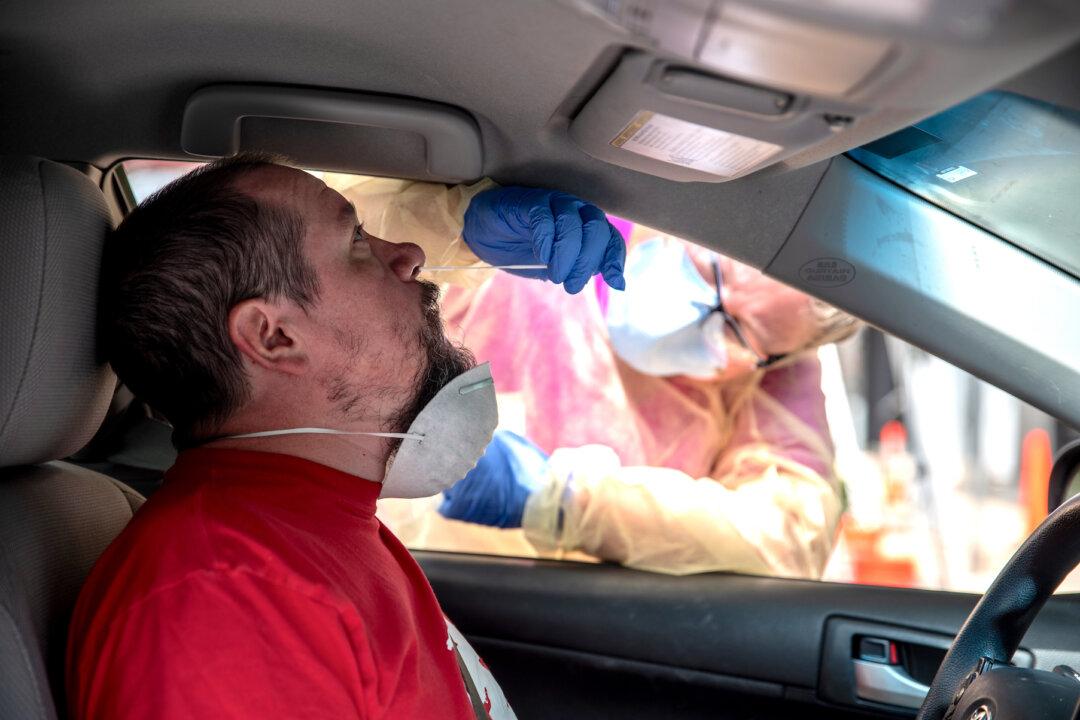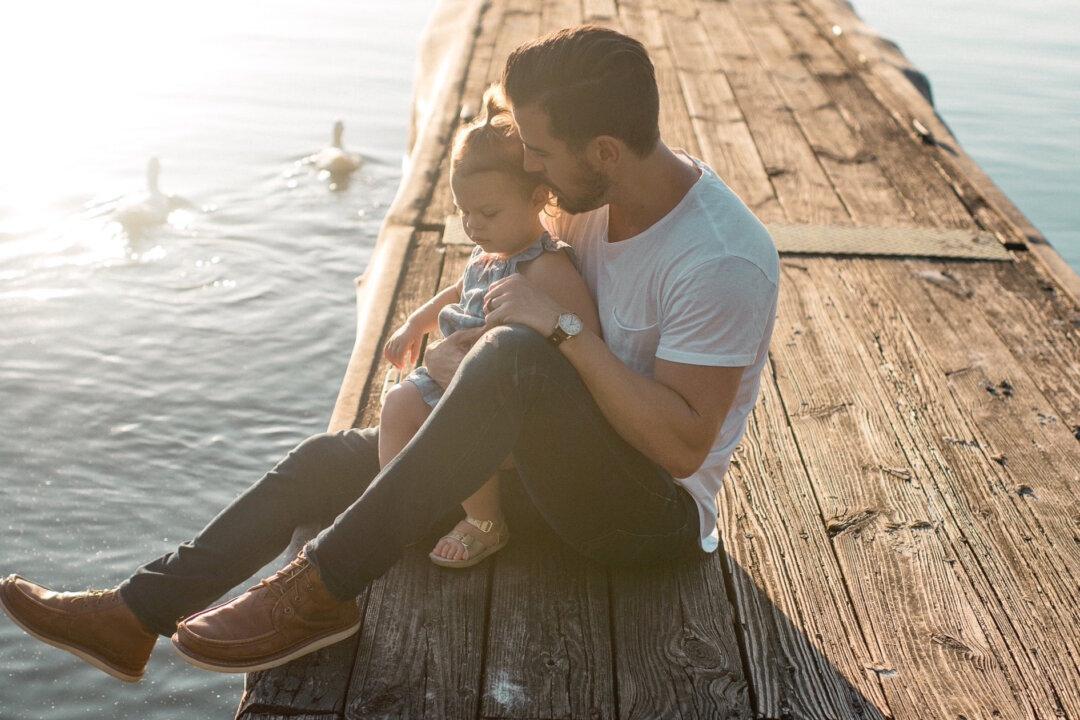IRISH HILLS, Mich.—When my mother said my grandfather’s unembalmed body would lie in the guest bed for three days before burial, I wasn’t sure what to think.
Three days seemed like a really long time to sit there watching a dead person. And wouldn’t it start to smell?
Up until this point my experience with death had been limited to a couple of open casket funerals and a visitation that lasted a couple hours, so I knew very little about the process of dying and death.
My grandfather, a World War II pilot and avid barbershop singer, was 91 and had been in hospice for the past month. My sister and I visited him a few weeks prior when he was still able to talk and regale us with snippets of song in a steady, strong voice—after we reminded him what the lyrics were. So we had said our goodbyes and the circumstances of his death were about the best possible all considering.
Letting the Soul Reflect
No one in my family had ever done a home funeral at home. The seeds of the plan came to my mother as her mother lay dying 13 years ago and some friends shared their belief that after death the person—or soul—experiences a state in which they review their whole life. This review is sometimes reported by people during near-death experiences.
Through conversations with those friends and literature they gave her based on the insights of the clairvoyant philosopher-scientist Rudolf Steiner, my mother came to understand that the longer a person has lived, the longer their review will take. Steiner said and for a person of my grandfather’s age, a life-review would take at least three days. According to Steiner, it’s best if during this time, the body is disturbed as little as possible, so my mother decided that my grandfather’s body should have three days of quiet in her house so his soul could do what it needed to in peace.
This was kind of a brave decision because breaking with tradition is full of unknowns. However, my mother had had a taste of the benefits of caring for a loved one after death, when she had the opportunity to wash her mother’s body and view it unembalmed in a funeral home for three days; she found this very healing.
There is also a growing community of people in Southeast Michigan, who have joined the nation-wide home funeral movement and who are interested in home death care; and there is an experienced death midwife team in the area who were able to guide my family throughout the process.
Dying
The process of dying can start up to three months before the person passes, but the timetable depends on the person. One of the first signs is that the person starts to lose interest in topics and even people they once loved.
When I had visited my grandfather two months ago, I had been surprised that he was still full of plans for reorganizing his room to make it more livable, and ideas for how to get more people participating in an annual barbershop event that had been steadily losing its older members. But when I saw him just a month later, he did not talk about plans, and although we visited him three days in a row, he only seemed to enjoy conversation the first day, the second two days he was consumed with problems he was experiencing, and at one moment, made it very clear that he did not want me to hold his hand. This was mildly painful at the time, but looking back, I see it as a sign that he had entered a new phase, with very different needs.
Other physical signs that the dying process is underway are that the person will stop eating, may sleep most of the time, and be more confused and disoriented than usual.
A few days before his death, my grandfather said to my mother that he had no more strength left and indeed could barely lift his arms. About that time his speech started to slur and he became totally unresponsive two days before he passed.
This was the physical side those around him could see, inside, I’m sure there was a lot more happening.
What to Do Upon Death
The death midwives told my mother that the first thing to do after your loved one passes is nothing. Thus, when she arrived at my grandfather’s bedside minutes after his passing, she let the feelings come, mostly grief that she had missed his final moments.
Later, one of the midwives and also the hospice chaplain told her that people die on their own terms and some prefer to make this transition in private. This was very likely my grandfather’s preference given his introverted tendencies, and my mother was able to complete another important step in the grieving process—letting go of guilt.
The second thing to do after death is let others know and the third is to wash the body.
After death the bowels release so a hospice nurse cleaned any mess, then under the guidance of one of the death midwives, my mother and father washed the body with soap and Thieves essential oil blend—a potent mix of cinnamon, clove, rosemary, lemon, and eucalyptus. Then they dressed him in a suit and his favorite worn-out brown shoes and wrapped his jaw tightly to his head with an Ace bandage so his mouth would remain closed when rigor mortis set in.
Then a few hours after his passing, my grandfather’s body was transported by a local funeral home to my parents’ guest room, where it was laid on dry ice. Family and friends were invited for a visitation two days later.
The Vigil
Perhaps the most beautiful thing about having a deceased loved one in the home is the chance to experience a wide range of emotions and thoughts. For everyone, this process is different.
When I first arrived, I did not want to get closer than about four feet to the body, while my sister went right up to the head. Looking at it, I really felt that the spirit that was my grandfather was not at all present in it, but my sister talked to him as though he was still somewhere deep inside.
None of my grandfather’s extended family lived close enough to come view the body, but many came from my father’s side as well as friends and neighbors. Most people went in to view the body and say prayers although some did not, and for the rest of the time we talked, ate, and wrote notes to put in the coffin.
The most poignant moment in the whole process for me happened the last night of the vigil. My mother and I were viewing the body by candlelight, and she reminded me that part of the life review is that a person experiences their life from the perspective of others, including how their words and actions made others feel.
Suddenly I realized that I had not fully forgiven him for some things he had said to me.
When I was young, I remember him trying to teach me a song but telling me I just wasn’t getting it, which made me feel very self-conscious and frustrated. In his later years, undiagnosed PTSD that had haunted him since the war, manifested as deepening depression, hoarding, and obsessive-compulsive disorder. Needless to say, this was challenging for family, and my grandfather often acted irrational and selfish to those around him.
But I believe there are at least two parts to a person: the true self, which is kind and loving, and the ego, which is limited by self-serving notions and negativity.
So now that my grandfather is gone, I want him to be his true self in my mind and heart, and as I stood there, I silently repeated, “Grandpa, I forgive you, grandpa, I forgive you.”
I do not think I would have come to this point if I'd only seen his body in a funeral home for a few hours.






